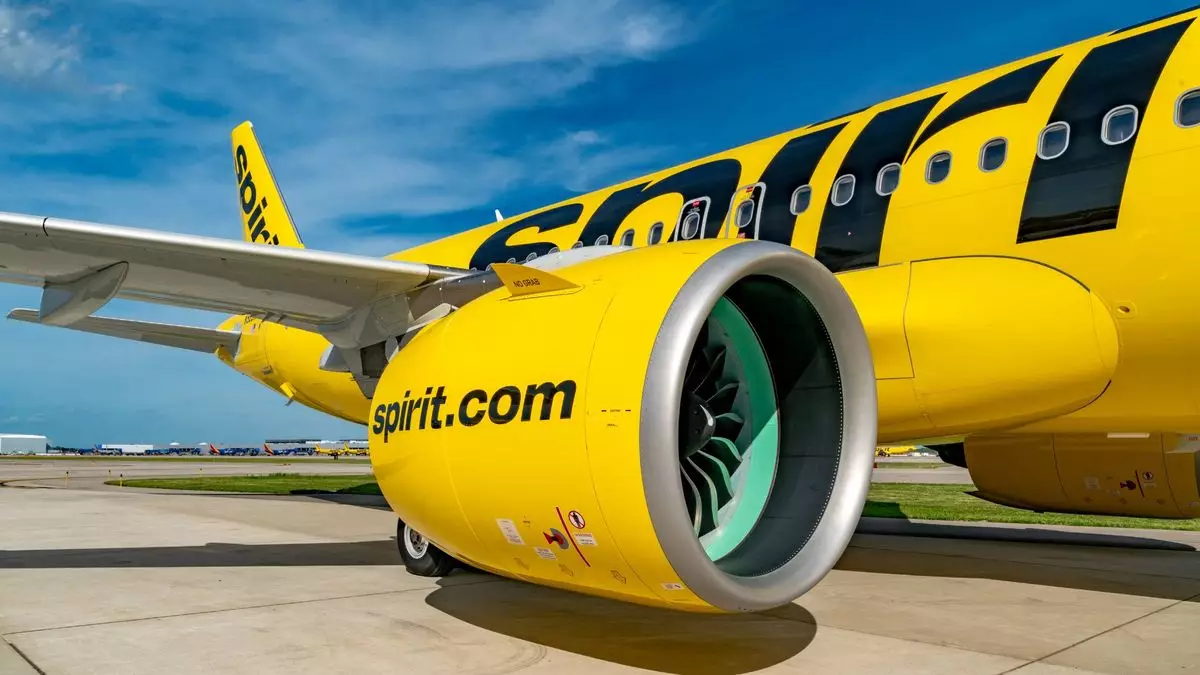In a recent and highly anticipated decision, U.S. District Court Judge William Young blocked the proposed merger between JetBlue and Spirit airlines. Although acknowledging the potential consumer benefits of combining the two airlines, Judge Young ruled in favor of preserving Spirit’s ultralow-cost business model. By rejecting the merger, the judge aimed to safeguard the interests of Spirit’s budget-conscious customers, which ultimately took precedence over the potential competitive advantages afforded by the merger. This ruling sets a significant precedent for future airline mergers, potentially making it more challenging for airlines to obtain regulatory approval without demonstrating clear benefits for specific consumer segments.
Judge Young’s decision to block the JetBlue-Spirit merger aimed to protect competition in the airline industry while prioritizing the interests of consumers. By combining the two airlines, JetBlue and Spirit would have formed the fifth-largest carrier in the U.S. with a substantial domestic market share of approximately 10%. This increased competition posed a direct challenge to the industry’s dominant players, including Southwest, American, Delta, and United. According to Judge Young’s order, an airline’s relevance to consumers is determined by various factors such as its size, route network, and the options it offers.
While previous airline mergers had often touted the efficiencies of scale as a crucial argument for regulatory approval, Judge Young’s ruling signals a potentially more stringent approach. He concluded that the antitrust law required him to analyze the merger’s impact on a route-by-route basis rather than considering it on a network-wide scale. This decision sets a higher bar for airlines seeking merger approval, forcing them to address specific consumer market segments and demonstrate that the efficiencies gained will outweigh any potential harm to those segments. Such a legal threshold poses a considerable challenge for future mergers and may deter consolidation opponents.
One of the critical aspects of antitrust cases is the definition of the relevant market. In this case, Judge Young’s ruling determined that market definition should occur on a route-by-route basis. By doing so, he further raised the bar for airline mergers, making it even more difficult to satisfy the legal threshold for regulatory approval. Christine Bartholomew, a professor of law and an antitrust expert, noted that this precedent would have wide-reaching implications, potentially influencing future cases involving market definitions in the airline industry.
The ruling by Judge Young further strengthens the position of consolidation opponents who argue against the “bigger is better” argument often used to support airline mergers. Diana Moss, then the president of the American Antitrust Institute, remarked that the scale alone should not serve as a justification for a merger. This decision challenges the notion that increased size automatically leads to enhanced competition and customer benefits, emphasizing the importance of considering specific consumer segments and potential harm to those segments in merger evaluations.
JetBlue and Spirit’s Response
Despite the setback, JetBlue and Spirit expressed their intention to continue advocating for the merger and the benefits it could bring to consumers. Both airlines believe that merging would increase competition, expand low-cost travel options, and enable them to better compete with the dominant U.S. carriers. However, Judge Young’s ruling emphasized that Spirit’s current financial difficulties, including consecutive years of losses and projected future losses, were not sufficient grounds to justify the merger.
Impact on Spirit’s Budget Travelers
Judge Young highlighted the potential harm to budget-conscious travelers should the merger have proceeded. Spirit currently represents 46% of the market share among U.S. ultralow-cost carriers. Under the merger plan, JetBlue planned to retrofit existing Spirit aircraft with a more spacious configuration, reducing the total number of seats available by 11%. This reduction in capacity would have a significant impact on Spirit’s customers, who rely on the ultra-low-cost carrier’s affordability and availability.
Long-Term Effects and Replacement Challenges
Additionally, the ruling considered expert testimony from the Justice Department, emphasizing the substantial challenge of replacing Spirit’s capacity nationally. According to the expert witness, it would take up to five years for other ultralow-cost carriers to compensate for Spirit’s capacity, and over 15 years to replace Spirit’s capacity specifically on Spirit routes. This underscores the potential long-term effects of the merger and the extended timeframe required for competitors to fill the gap left by Spirit.
Judge William Young’s decision to block the JetBlue-Spirit merger represents a significant development in the antitrust battle within the airline industry. By prioritizing the interests of Spirit’s budget-conscious customers and setting a route-by-route market definition, the ruling poses a challenge for future airline mergers. The decision underscores the need for airlines to demonstrate clear benefits for specific consumer segments while addressing potential harm. Moving forward, the industry must navigate a more rigorous regulatory landscape that places consumers’ interests at the forefront of merger evaluations.


Leave a Reply